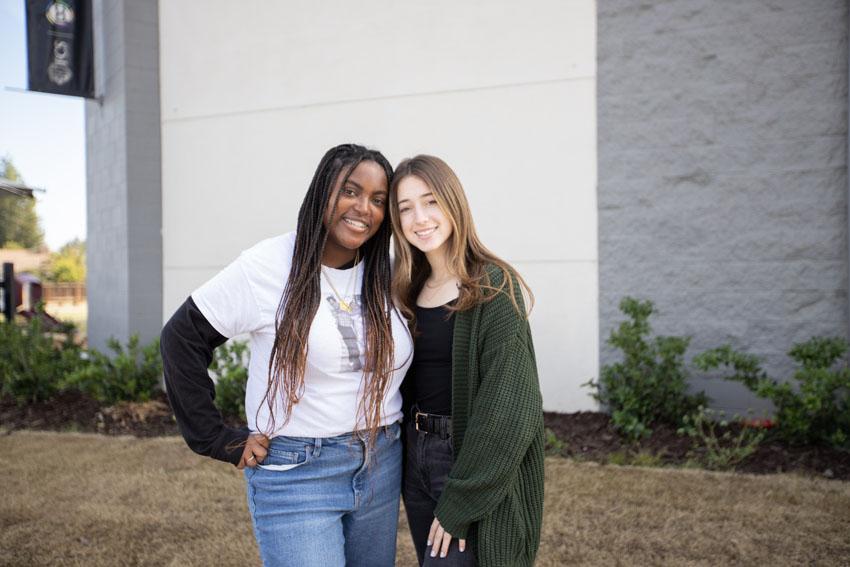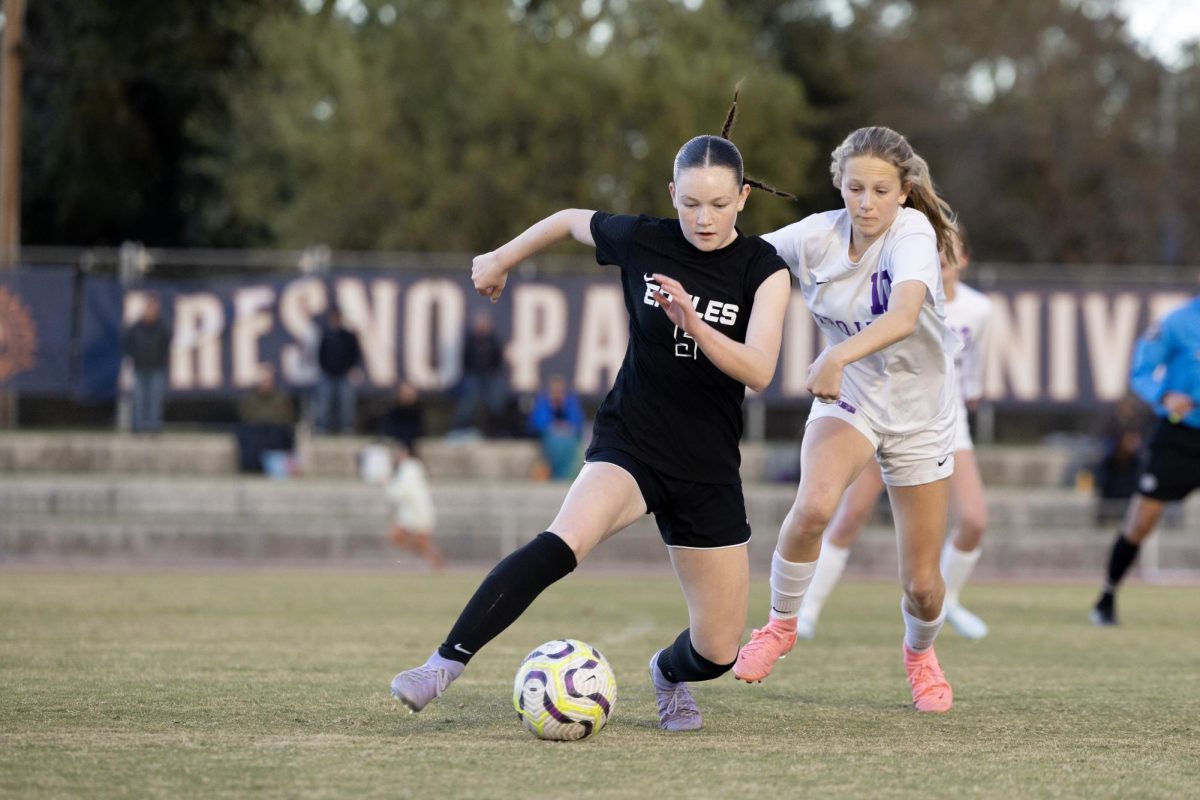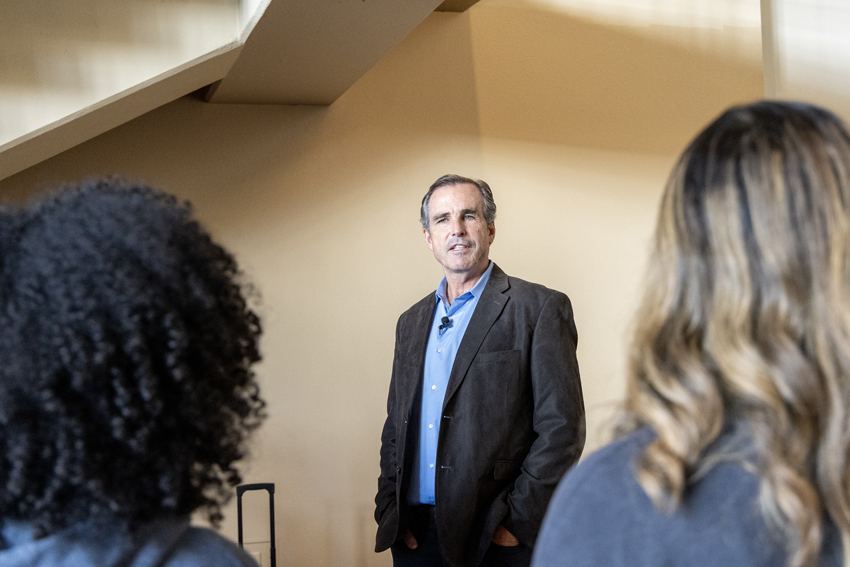Campus administration, CDC, WHO offer health, safety tips

Cases of coronavirus (COVID-19) are now spreading around the world to different countries, including the United States, Saudi Arabia, Korea, and Italy. News outlets around the globe are tracking its advance and subsequent slowdown. Reuters, among others, publishes daily numbers on new cases, coronavirus xenophobia, deaths and when and where the coronavirus has subsided.
The US death toll as of March 10 is 26 and CBS News reports that several members of Congress have joined hosts of others in quarantine. The entire country of Italy, 60 million people, is now under travel restrictions and encouraged to stay home.
According to the Center for Disease Control and Prevention (CDC), The total number of cases in the US is 647, March 10, 2020. Many individuals who were infected exposed themselves from repatriation flights from outbreak locations in Asia. National Public Radio (NPR) posted another update on their Twitter, confirming 500 cases of COVID-19 in the US, March 10.
NPR went on to report that there are more than 94,000 people that have been confirmed to have the new coronavirus worldwide and cases continue to grow the fastest in South Korea, Italy and Iran.
Two Chinese international students Minyu Zhu and Haoyu Zhu traveled to Italy through an exchange program provided by their high school in West Hartford, CT this school year.
In the following tweet, NPR informs the public of coronavirus cases in the US since January 15.
Health officials have identified more than 500 cases of COVID-19 in the United States and 26 deaths, since Jan 15th.
Here’s a look at where the cases are in the U.S. https://t.co/eJhQUEaSQn
— NPR (@NPR) March 10, 2020
Currently studying abroad in a city near Rome called Viterbo, Mingyu and Haoyu came to Italy with excitement at the end of August 2019 to learn Italian language and culture. However, the outbreak of coronavirus in Italy shattered their illusions.
During the Venice Carnival, the sisters went to Venice, Italy for the weekend, Feb. 21 – 23.
The next Monday they were not allowed to go to school. At that time, the virus had spread to Italy and newspapers posted various stories about it. The general public was in panic along with the town they resided in.
“[After coming back from the carnival], ” Minyu said, “I got one message from the school stating all visitors from Venice this weekend must remain at home in isolation for two weeks.”
After one day of staying at home, the local health organization initially said that Venice was not in the area of infection, so they didn’t need to be quarantined for two weeks.

As intense responses arise around the globe about COVID-19, many people target Chinese people on the basis of their appearance, or think of all Chinese as the root of coronavirus and the coronavirus xenophobia.
According to Cambridge English Dictionary, xenophobia means “extreme dislike or fear of foreigners.”
Mingyu and Haoyu were discriminated against by an Italian man when they were on the way to a Vatican museum one day for school fieldwork.
“An Italian man walked by us and spat at us,” Minyu said. “I was shocked. I am aware of xenophobia, but didn’t think it would actually happen.”
Many Italians are worried about the coronavirus. This fear causes many to place their prejudice on all Chinese, even if they don’t carry the virus.
“We visited a pharmacy store today,” Minyu said. “A guy that stood in line behind us said that ‘I need to stay at least two meters away from them.’”
The worst may be yet to come. According to an article from CNN, Coronavirus sparks total lockdown in Italy and alarm in the US as cases rise globally with over 4,000 deaths and over 113,000 cases. So far, Italy has 9,172 cases and 463 deaths – the most of any country outside of China. Also, Italy will close all schools and universities to help prevent the spread of coronavirus that was announced by Prime Minister Giuseppe Conte, March 4.
In the following podcast, Serena Zhao, ’20, spoke with juniors Mingyu (Mia) and Haoyu (Cara) Zhu on the phone about coronavirus in Italy and how they view stereotypes involving Asians.
As international students, Minyu and Haoyu cannot take the registered SAT even though they are juniors in high school and need to take it. The College Board has canceled the March SAT in some infected countries, including China and Italy, due to safety and health issues.
Besides, exchanging time in Italy ended unsatisfying. Minyu and Haoyu expressed their sadness of not being able to meet everyone ever again.
“Our class was happily discussing our upcoming trips to Luxembourg, Rome and Cyprus for some class field trips coming up in March,” Haoyu said. “In the afternoon, the teacher announced that everyone has to go home, and school is shutting down.”
School ended unexpectedly for them and for many other classmates who also came from all over the world.
The New York Times and many news outlets across the world are also reporting that new restrictions are now in effect. According to a recent article, “authorities announced that 9,172 people had been infected by the virus, 1,598 more than the day before. Deaths climbed to 463 people, the majority of whom are overwhelmingly elderly and sick people.”

Campus superintendent Jeremy Brown reported that the school is attending to the details of cleaning, disinfecting and sanitizing FCS classrooms and buildings. He asked that if a child comes to school ill, the staff uses a hospital-grade disinfectant in the room immediately to ensure that it is safe for use by other children.
“You can help us by monitoring your child’s health,” Superintendent Brown said. “And make sure that if they are showing symptoms or any fever they should be kept home from school. Report your child’s absence by calling either the elementary or secondary school office.”
Brown encourages the school community to stay informed and trust the authority of the school in handling the situation and potential virus threats.
“As we move forward, please know that we are continually monitoring the situation and making plans should this situation impact our school community,” Brown said. “If any situation develops, we will be sure to communicate with you through email and letters.”
He went on to ask parents to reinforce the importance of washing their child’s hands on a regular basis, to refrain from sharing water bottles/drinks and make sure when coughing or sneezing, the teach them how do so into their elbow, not their hands.
According to CDC, the public doesn’t need to wear face masks unless they are showing COVID-19 symptoms. The CDC does not advise face masks for the general public as a means of prevention against the virus because the masks may be in short supply and they should be saved for healthcare workers.
In other developments, The Washington Post reported that New York City Gov. Andrew M. Cuomo has ordered “schools, places of worship and other large gathering spots within a one-mile zone of the city of New Rochelle” to close their doors for 14 days, March 10; even many colleges and universities cancel classes this week.
Yet these and other organizations and political leaders are calling for calm and responsible actions to prevent the spread of the virus.
The World Health Organization (WHO) notes that if using face masks, people should wash their hands when putting the masks on and discard immediately after removing them.
Scientists raise awareness on “don’t touch your face” to prevent the virus from spreading. Since this habit is difficult to break and people all do it oftentimes unconsciously, The New York Times provided some tricks on how to avoid hands from touching faces.
In the following tweet, Valley Children’s Hospital outlines their COVID-19 online information hub.
Our COVID-19 hotline is available from 7 a.m. to 7 p.m. seven-days a week to answer questions you may have.
Toll free number: 888-286-9336
Local number: 559-353-3333
You can also visit our COVID-19 online information hub at:https://t.co/olWopgheYZ— Valley Children’s (@CareForKids) March 10, 2020
Salvador Alvarez, an infectious diseases specialist who works for Mayo Clinic, provided a Q&A about the disease. He pointed out there are no effective treatments for COVID-19 so far and just like treating the flu (influenza), people should wash hands frequently, clean surfaces touched often and follow travel advisories.
As hand washing becomes more significant to public safety, people learn that not every soap and hand sanitizer is suitable for killing germs. According to CDC, an effective hand sanitizer has between 60 percent and 95 percent alcohol content. An CNET article provides hand soaps to fight virus including Softsoap Antibacterial Liquid Hand Soap and Dial Complete Antibacterial Foaming Hand Soap.
Please keep informed and watch and listen to updates via established news sources or the campus administration. Email any questions about the virus’s effect on campus to info@fresnochristian.com.
For more articles, read EDITORIAL: Stereotyping negatively impacts communities, personal growth, Kids Day cancellation inspires community support, digital giving persists and Baseball box scores 2020.
Serena Zhao can be reached via email.



![[Podcast] Moving Forward: God in the unexpected](https://thefeather.com/wp-content/uploads/2023/01/IMG_9994.jpg)
![[Podcast] Moving Forward: Fentanyl crisis](https://thefeather.com/wp-content/uploads/2022/11/20170509-fentanyl-pictures-0012.jpg)



Silva Emerian • Mar 11, 2020 at 8:22 am
This is an excellent, well written, informative and balanced article. The cases of xenophobia you mention are heartbreaking, and I know that it has happened at FCS, too. I hope and pray that we can all keep calm as we navigate this outbreak. Keep up the great work, Serena!